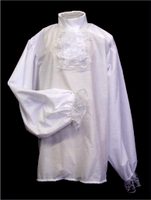Abigail Paine: college boy's big sister
 In 1746, Abigail Paine was a twenty-one-year-old Boston woman. Despite her intelligence, she had no chance to go to Harvard College, as her brother Robert Treat Paine did that year. He was only fifteen, but the mid-teens was the usual age for boys to enter college in this period.
In 1746, Abigail Paine was a twenty-one-year-old Boston woman. Despite her intelligence, she had no chance to go to Harvard College, as her brother Robert Treat Paine did that year. He was only fifteen, but the mid-teens was the usual age for boys to enter college in this period.
Young Bob Paine seems to have kept in touch with his older sister and the rest of the family in a way parents might recognize today: by sending his laundry home. Here are extracts from some of the early letters from The Papers of Robert Treat Paine, vol. 1.
Abigail to Bob, 20 Oct: "Father is much Concern'd that you have no wood and wou'd have you Come down, we shall Send the horse this affernoon or in the morning if we have any Opertunity for their is a Nesessity of your Coming or Sending your Linnin for Wednesday is our Wash."The following March, Abigail told her little brother, "I have Sent you a peice of Cake and wish you Cou'd have more of it. If I Cou'd Come up, I wou'd bring one to keep your birth day." What a swell sister! She also reminded Bob, "I pray that you wou'd Send me all your dirty Linnen & Some more Berries."
20 Nov: "Dear Brother, I am oblidg'd to you for Sending your Linnin to us but I am Sorry that you Could not afford us your Company when it desir'd it So Strongly but I'll Suspend my resentments till I see you and hear your reason. I have sent you one Shirt which will Last till thanksgiving, I pray that you wou'd bring all your Linin & Stockings for I did not Recive but three shirts & necks & 2 Caps."
In 1749, Abigail married a man working for her merchant father, Joseph Greenleaf. He became a lawyer and justice of the peace in Abington, then in the early 1770s moved to Boston and became involved in the Patriot cause. He wrote for (and helped fund) the Massachusetts Spy, then started the Royal American Magazine. Greenleaf remained politically active through and after the war, though he never achieved the prominence of his brother-in-law.
Abigail and Joseph Greenleaf had seven children, six surviving to adulthood. Abigail died in 1809, her husband a year later.

No comments:
Post a Comment